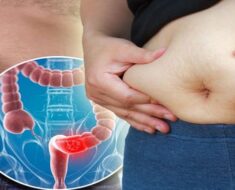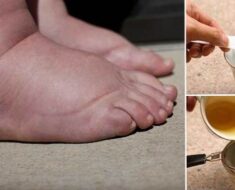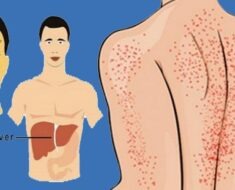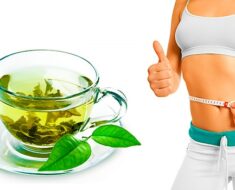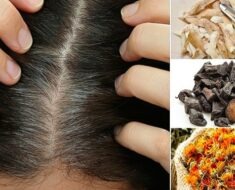
Everyone has heard that the only way to lose weight is through diet and exercise. It makes sense, right?
But if your body isn’t at a weight that can allow you to exercise safely, then what are you supposed to do? You could risk injury and set yourself back even more.
Or, maybe you’re looking for another way to lose weight on top of your exercise routine.
Well, believe it or not, you can lose a substantial amount of weight just by changing your diet. Now this doesn’t mean you shouldn’t exercise. However, it does mean that you have the ability to shed those pounds by eating right.
INVESTIGATE UNDERLYING HEALTH ISSUES OR MEDICATIONS
Do you ever just feel like no matter how much you exercise, you just can’t seem to lose the weight?
And no matter how healthy you eat, the scale just won’t go down?
The first step on how to lose weight without exercising is determining if you have underlying health issues or medications that are preventing you from losing weight.
A very common overlooked reason for weight gain, and not being able to lose it, are underlying health conditions you aren’t aware of. In some cases, a medication you’re taking can even be the cause of your weight gain.
Some of the most common health conditions responsible for weight gain are:
- Chronic stress
- Cushing’s syndrome
- Depression
- Fluid retention
- Hypothyroidism
- Hormonal changes
- Polycystic ovary syndrome (PCOS)
In order to make any changes, you first need to identify the culprit and work to cure it. Only then can you start seeing those changes you’ve been working so hard for.
It should be noted that the best way to determine an underlying health issue or a problem with your medication is through professional medical help. If you suspect one of these are to blame for your weight gain, make an appointment with your doctor to help you figure it out.
DIET AND WEIGHT LOSS
This may come as a shock, but changing your diet is critical for losing weight.
Now by diet, we’re not talking about some crazy detox that only lets you drink juice or won’t let you eat any bread. Because c’mon, who can live without cheese bread?!
Diet is a very broad term and when I use it, I’m talking about sustainable foods and meals that you eat everyday.
There are healthy diets and there are unhealthy diets. Unhealthy diets consist of processed foods, sugary drinks, and fast food. Healthy diets contain healthy amounts of fruits and vegetables, protein, and fibers.
Your diet should be healthy about 90% of the time with the occasional indulgence.
You’re human, you can’t expect yourself to never eat pizza again. You can indulge in a pizza or ice cream every once in a while. There’s nothing wrong with that.
However, it’s important to counteract this by burning off a few more calories in your workouts and eating these foods in moderation. But you should NEVER punish yourself for enjoying a burger and fries or some ice cream.
Exercise and food are not the enemy, and really nothing is.
You just have to have some self control and remember that the goal is to nourish your body with the food and exercise it actually needs.
Now let’s get in to how exactly you’re going to lose weight without exercising.
Eat in a Caloric Deficit
A calorie is a unit of energy, so think of a calorie as the energy that comes from the food and drink you consume.
The calories we refer to in food are actually kilocalories, but for simplicities sake, it’s generally just abbreviated as calories or cal. As the name suggests, one kilocalorie contains 1000 calories.
A 2013 report published by Researchers from the Center for Disease Control and Prevention (CDC) found that fast food accounts for 11.3 percent of calories consumed by Americans. However, adults only get 6 percent of their daily calories from fast food. Either way, these numbers are still very high.
According to the United States government, the recommended average daily caloric intake for males is 2700 kcal, while for females it’s 2200 kcal. Of course, these are only averages, meaning certain factors determine this value.
The most common are:
- Gender
- Height
- Weight
- Physical activity demands
- Overall health
Since you’re looking to lose weight, it’s important you eat in a caloric deficit. This simply means consuming slightly less calories than you expend in a day.
In order to do so, you should either eat less or exercise more.
The MyFitnessPal App is a free app that can help you determine a proper daily calorie intake based on your body and goals.
It’s super simple to setup and it log your meals for the day. It even shows you how many calories you have left to eat for the day while also taking into account any exercise you perform throughout the day.
The MyFitnessPal App is a must if you’re trying to lose weight, so download it today and start tracking your calories!
Note: there is a paid version of the MyFitnessPal App that goes even further in tracking your calories. It breaks them down into macronutrients, also known as carbohydrates, fat, and protein.
Eliminate the Bad Processed Foods
Torey Armul, MS, RD, CSSD, LDN, who is a spokesperson for the Academy of Nutrition and Dietetics, describes processed food as “any food that has been purposely changed in some way prior to consumption.” This means anything from bagged spinach to cake mix to TV dinners are considered processed foods.
However, there is a fine line between processed food that is and isn’t considered healthy.
The healthier foods are those that have been minimally processed, such as bagged spinach and frozen fruits and veggies.
On the other hand, the not so healthy foods are the ones that have been heavily processed.
Since these foods are so heavily refined, they lose almost all of their (good) nutritional value. Often times these foods are filled with added sugars, salt, and fat, which are a large contributor to weight gain.
Since these “bad” processed foods are so refined, your body has an easier time digesting them. This in turn leads to the feeling of hunger not long after consuming them. And what does this mean?
It means that you’re more likely to eat more food throughout the day if all you’re consuming are heavily processed foods. That means you’re most likely consuming more calories than you expend in a day, which leads to weight gain.
So if you’re serious about losing weight, opt for minimally processed, whole foods. Not only will the weight be easier to lose, but you’ll also experience a dramatic increase in energy since your body is getting the proper nutrients it needs to keep you going.
Cut Back on Sugars
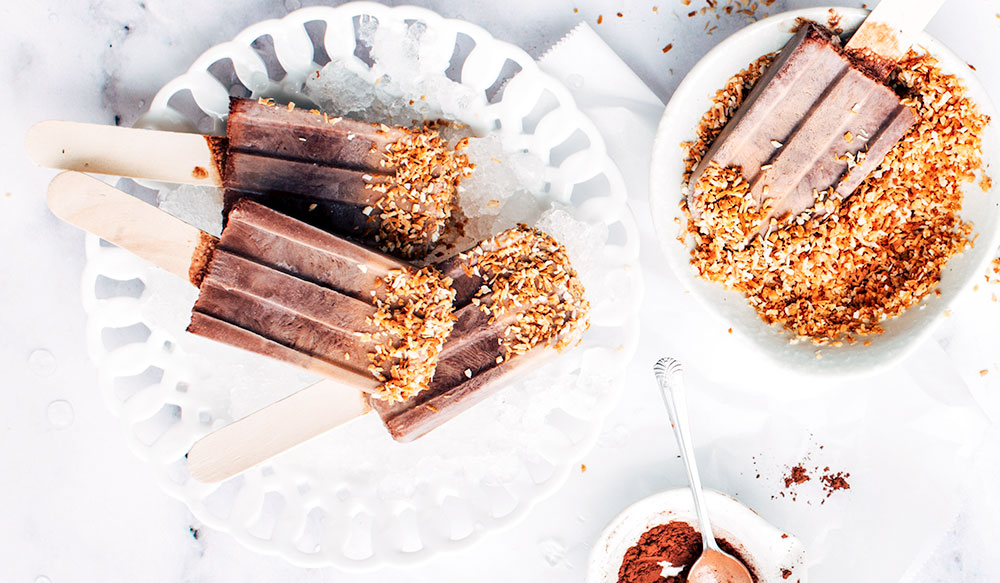
Large amounts of sugar intake have been linked to weight gain and obesity. The reason for this is that foods full of sugar contain little to no nutritional value, meaning they are empty calories.
So while you’re still consuming these calories, they are not aiding in your satiety. This is turn means you’re going to eat more, thus increasing your daily caloric intake. Subsequently, you’re (most likely) consuming more calories than you’re expending in a day, which leads to weight gain.
Major contributors to weight gain with high sugar content:
- Candy
- Gatorade
- Granola bars
- Juice
- Junk food
- Soda
Instead of buying the above products and similar items, opt for water and heartier options.
Consider a Low-Carb Diet
If you’re unfamiliar with carbohydrates, they are the fibers, starches, and sugars in the foods you consume. So whether you’re eating a plate of vegetables (yeah, right….) or you’re enjoying some cheese bread, you’re consuming carbohydrates.
When considering a low-carb diet, it’s important you fully understand what it means.
The 2015-2020 Dietary Guidelines for Americans recommends adults receive 45-65 percent of their total daily calories from carbohydrates.
Now with a low-carb diet, you should consume less than the recommended 45-65 percent of calories from carbohydrates. So which carbohydrates should you include in your diet?
Good question, as this is a very important factor to losing weight with a low-carb diet.
There are good carbs, also known as complex carbs, and there are bad carbs, also known as simple carbs. Simple carbs are found in foods that have been heavily refined, thus allowing your body to process them quickly.
Complex carbs come from foods that are much more pure and generally contain fiber, which means they take longer to digest.
Some simple carbs to stay away from:
- Candy
- Soda
- Pastries
- White flour, rice, and pasta
Instead, you should try and eat more complex carbs, such as:
- Bananas
- Beans
- Cucumbers
- Kale
- Quinoa
- Whole wheat flour, bread and pasta
As you can see, there’s a clear distinction between simple and complex carbs. This can help you determine which carbohydrates to avoid and which to eat more of.
Eat Salads Before Meals
Salads are one of those things you know you’re supposed to eat but just can’t seem to bring yourself to. However, if you’re looking to lose weight, opting for a salad before a meal is something to seriously consider.
Salads are relatively low in calories as long as you don’t add unhealthy toppings to it.
When you eat a salad before your main course, you’re consuming a ton of important nutrients that will help sustain you. When this happens, you’ll have less room for those high calorie foods.
All you need are some leafy greens, hard boiled eggs, your favorite fruits and nuts, and a delicious, low-calorie salad dressing and you’re good to go.
You’re the one eating the salad, so make sure you add all the (healthy) things you like to it. This way, it’s enjoyable and you’ll no longer dread eating salads.
Consume Fiber-Rich Foods
At some point in your life, you’ve been told to eat more fiber. But were you ever told why? It’s simple, really. Fiber has tons of health benefits:
- Aids in normal bowel functions
- Helps achieve a healthy weight
- Lowers risk of diabetes and heart disease
- Prevents and relieves constipation
Foods that contain fiber, which are generally complex carbohydrates, are more filling and take longer to digest. This leads to the feeling of being full for longer.
Due to this, you’re less likely to eat more. This also means you’re less likely to eat more unhealthy foods. In addition, fiber-rich foods tend to contain less calories for the same volume of food.
So remember, foods rich in fiber aid in normal bowel functions and are an important contributor to weight loss.
Get Your Daily Dose of Protein
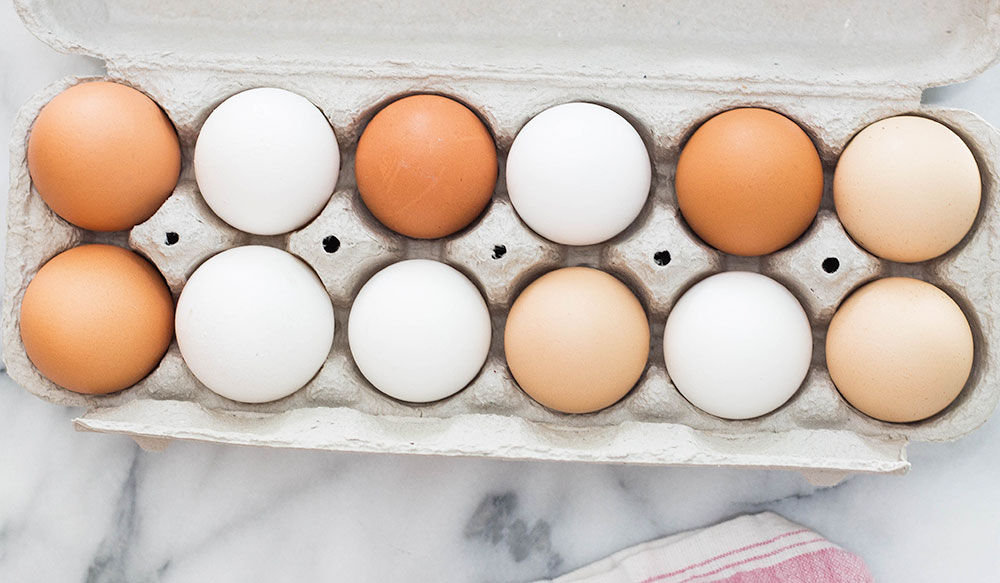
We all know protein aids in muscle repair and growth, right? Well, maybe not *all* of us did, but now you do.
However, protein has several health benefits that you might not be familiar with. One of them is, you guessed it, aiding in weight loss.
Similar to fiber-rich foods and complex carbohydrates, consuming protein can help you feel full longer. This means you’re more likely to fill up sooner eating foods packed with protein, which means you’re less likely to consume more calories throughout the day.
Another great benefit of protein is the fact that your body body burns more calories processing protein than carbs and fat. This is due to TEF, or the thermic effect of food, which is the energy used to digest food into absorbable components.
All the more reason to eat your recommended daily does of protein.
Some healthy protein sources include:
- Animal sources (chicken, turkey, fish, dairy)
- Beans
- Eggs
- Lentils
- Nuts
- Quinoa
- Whole grains
The National Institute of Health recommends a minimum of 0.36 grams of protein per pound for a sedentary person, or someone who rarely exercises. If you lead a relatively active lifestyle, you should consume more.
Eat Small Meals, Several Times a Day
Eating 3 meals a day is pretty common. Wake up, eat breakfast, eat lunch 4-6 hours later, then eat dinner another 6 hours later.
Often times, we tend to overeat during these 3 main meals to sustain us until the other. This overeating is the main reason eating 3 meals a day can become problematic.
Some doctors and researchers have found that overeating can cause biological changes to the body. Consequently, this can lead to more food cravings and mixed signals about when you’re actually full.
In order to break this cycle, you should instead eat 5-6 smaller meals spread throughout the day. You still have your 3 main meals of breakfast, lunch, and dinner with the addition of a mid-morning snack and an afternoon snack.
While eating several small meals throughout the day may not help everyone lose weight, it can certainly prevent you from overeating and help you feel better overall.
SET SMALL, ATTAINABLE GOALS
One of the biggest factors contributing to failed New Year’s Resolutions and losing weight is setting too extreme, or vast, of goals.
When you start a new diet or tell yourself you’ll hit the gym 7 days a week, you’re not being even remotely realistic. These are big lifestyle changes so you can’t expect to dive right into them without becoming overwhelmed and ultimately giving up.
To avoid this feeling of failure, you have to start out small.
Think of one thing you want to change and really ask yourself why you want that change. Then, pick a date you want to achieve it by. From here, you should write down the steps you need to take in order to achieve your goal. And then take action.
Remember: “A dream written down with a date becomes a goal. A goal broken down into steps becomes a plan. A plan backed by actions makes your dreams come true.” – Greg Reid.
As cliche as it is, Rome wasn’t built in a day. The same can be said about the masterpiece that is you.
You can’t expect to see changes instantly, and you shouldn’t.
With hard work and consistency, you will see results and ultimately be in a better place than you were before.
